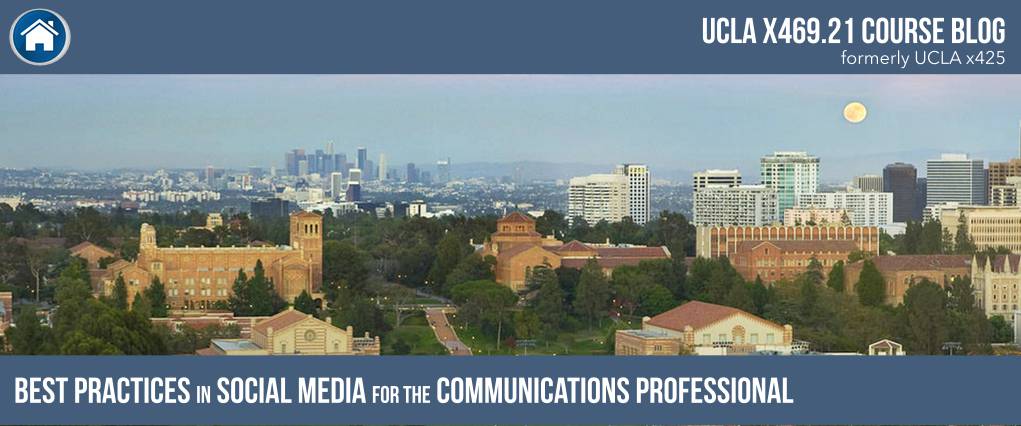
WEEK 1: A Conversation with Guest Speaker Clint Schaff by Kattita Rivera
h3>By UCLA X469.21 Student Kattita Rivera

Kattita Rivera
Our week 1 guest speaker, Clint Schaff, VP of Strategy & Development at the Los Angeles Times, brought an energetic discussion and valuable social media insights.
Clint explained that what matters most is perception, and how much passion one brings to social media to draw an audience and stand out from the crowd.
He then covered why it’s important to tie social media efforts to measurable objectives. He suggested we follow an approach he calls “POST” — which is an acronym for people, objectives, strategies and tactics. Approaching social media efforts using this template helps keep everything focused and on track. He also said that it’s vital to ask oneself “why?” throughout the process to clarify objectives and make sure strategies and tactics are in sync. You should have a well-supported answer to the “why?” question before you invest time, energy, and money on any social media platform.

Clint Schaff
While it’s important to plan a social media campaign carefully, Clint said you should also be flexible and prepared to take advantage of chance interactions. Erik added that careful planning and the “POST” approach can enable marketers to leverage serendipity, or the occurrence of unplanned positive events.
Clint then discussed how the LA Times has had to evolve over the years to go with the flow. As social media has become more popular, sales of print newspapers have declined. This trend has forced newspapers to leverage their assets and seek alternate forms of revenue. One such opportunity involves the movie business. As Clint noted, many (perhaps up to half) of movies are based on newspaper stories, so the LA Times has decided to get a piece of the action. The paper has created LA times Studios to develop and produce projects based on the news stories it publishes. This move shows how the newspaper is trying to adapt to remain in business.
Finally, Clint pointed out that the actual content of a message (whether it’s a Tweet, Facebook post, etc.) isn’t as important as how people react to that message. I found this a very interesting way to consider how human psychology reacts to any stimulus. Thanks to Clint’s visit it was indeed a memorable class!


1 Comment